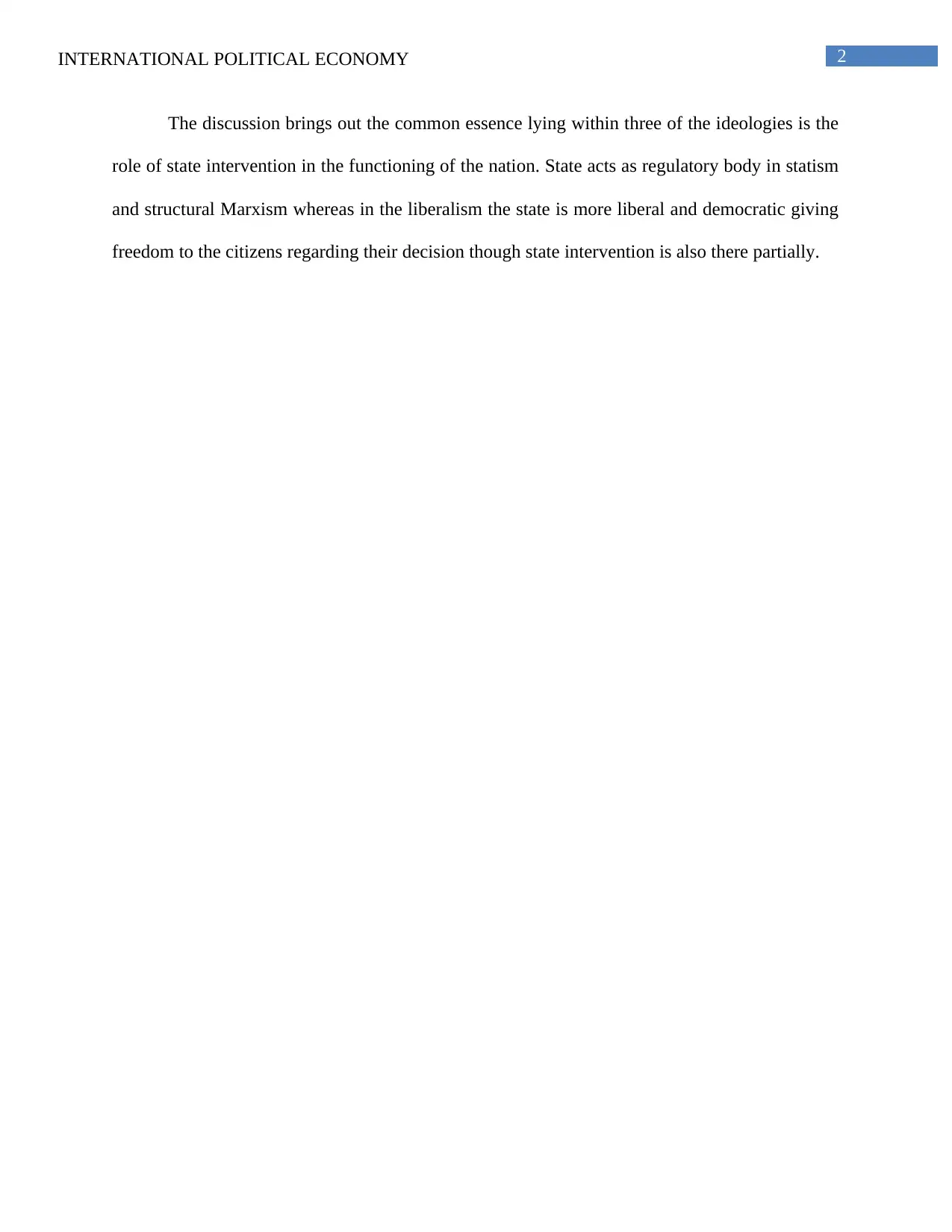International Political Economy: Statism, Liberalism, Marxism Analysis
VerifiedAdded on 2020/04/01
|4
|424
|29
Report
AI Summary
This report delves into the complexities of international political economy, focusing on three key ideologies: statism, liberalism, and structural Marxism. It explores how each ideology views the role of the state in governing and regulating the economy. Statism emphasizes state control, while liberalism champions individual freedoms and a free market, with state intervention playing a supporting role. Structural Marxism views the state as a tool to manage class conflicts and maintain the capitalist system. The report highlights the common thread of state intervention, albeit in varying degrees, across these ideologies, offering insights into the diverse approaches to governance and economic management within the international political landscape. The paper is a comparative analysis of these ideologies and their implications for the functioning of the state and the economy, drawing on academic sources to support its arguments.
1 out of 4







![[object Object]](/_next/static/media/star-bottom.7253800d.svg)